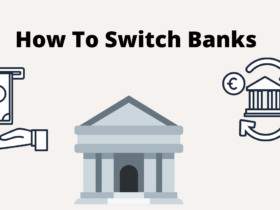If you think to open a brokerage account is a very difficult process, then you are wrong! A step can simply follow this step and open a brokerage account. By deciding what type of account you want and then comparing several online stock brokers, you should be able to choose the one that best meets your needs.
What Is a Brokerage Account?
A brokerage account, an account you can use for such stocks, to bonds, exchange-traded funds (ETFs), and investment purchases as mutual funds and hold. If you have to open a brokerage account with buys a brokerage firm and sells property investment market on their behalf. Firm securities you mentor in your brokerage account. Know about which is the Best Full-Service Brokers In India.
Passive investors are likely to want a brokerage account to invest and hold purchase. This investment strategy shares as generally underlying assets, bonds, and is dependent on funding. Use active investor brokerage accounts to buy at a fast rhythm and sell. Experts options, futures, foreign exchange and other securities using their accounts.
6 Step To Open A Brokerage Account
#1. Brokerage Account ownership types and Choose brokerage account you need.
There are two types of brokerage account: individual or joint brokerage account. What you need to choose any one brokerage account. Beneficial joint brokerage accounts have a way for those who are looking to pool their investments with another person such as a spouse or family member, and simple investment management and/or estate plan Can. Various brokerage account read below for a quick snapshot of the options available to you, and what they needed.
A. Individual brokerage account
A person is the name of one from the brokerage account, and only one, the account holder attached.
B. Joint brokerage account
A joint brokerage account is shared by two or more persons. Are held by the joint brokerage accounts most commonly spouses, but also tend to like open between parent and child, or family members, such as two persons as business partners with mutual financial goals.
There are 3 common types of join brokerage account.
- Tenants in Common: With this account type, if one dies the owner, there is no right to survival-will rather late to share the account to their property.
- Joint Tenants with Rights of Survivorship: Both owners have equal rights for this type of account. If an owner dies, the survivor will automatically receive the share of the deceased.
- Community Property: This type of account is solely owned by a married couple. Property division are 50/50 between each spouse, and if one dies owner, will go to the deceased’s share of his estate. This type of account is only available in AZ, CA, ID, LA, NM, NV, Texas, Washington and WI.
Choose brokerage account you need.
What are the objectives of your investment? If you want just a rainy day or want to invest to target a certain relatively near-term and not necessarily that tied your money until you retire, there is a way to go in a traditional brokerage account.
These accounts do not make a profit – you may have to pay taxes on investment gains and dividends – but when you wish you are free to withdraw your money. For this reason, a conventional, or standard brokerage account, often referred to as a taxable brokerage account.
If you select a traditional brokerage account, your broker will likely ask if you want a cash account or margin account. If you choose to apply for margin privileges, it basically means that you can borrow money to buy stocks, with stocks in your portfolio serving as collateral. You will pay interest on the money borrowed, and there are some inherent risks involved with investing on margin that you should be aware of.
#2. Compare Costs and Incentives
These days, almost all major discount free trade brokers commission. They can also give discounts to reward you for certain actions such as transferring a large investment account to another broker.As stated, it is important to review the entire pricing schedule of each online brokerage firm. Especially if you plan to do anything for trading other than stocks (options, mutual funds, ETFs, bonds, etc.) Important, as they often come with their own costs. For example, many brokers charge a commission in the range of $ 0.50 to $ 0.75 per option contract, so even if the broker does not charge a base commission, option trading will not be free at all.
Finally, provide incentives to attract many brokers to order business. And you do not have to be a millionaire to take advantage of them. I’m not saying that all you need is a good incentive to sway your decision, but it is a piece of course taking into consideration the puzzle fit.
#3. Decide on a brokerage firm
You can collect information about the offer of various companies of the costs, fees, and conveniences they. For each commission, as the pros and cons, they should weigh your investment objectives. And determine which broker is right for you.
#4. Apply new account
You can apply to open a new account online, and it is usually a quick and painless process with online brokers. If you need some identification information, such as your social security number and driver’s license. You may need to sign additional forms if you are requesting margin privileges or the ability to trade options, and require broker investment goals to collect information about your net worth, employment status, investable assets, and Will be.
#5. Credit to account
Your new online broker will probably give you some options for move money into your account, including:
- Electronic funds transfer (EFT):
- Wire transfer:
- Checks:
- Asset transfer:
- Stock certificates:
#6. Start researching investments
Your future yourself will thank you for taking this important step on the road towards financial security – congratulations for taking the initiative and opening a brokerage account.
Now comes the fun: Investing in stocks. Before starting, it is to make a good idea responsibility stocks, bonds, and / or learning the basics of selecting funds, how a well-diversified portfolio as well as spend some time.








